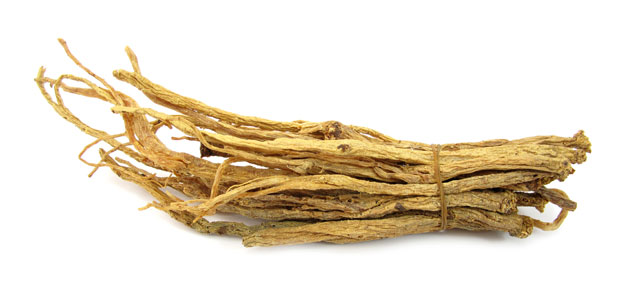Advertisement
The Truth About Aphrodisiacs
An aphrodisiac is a substance that increases sexual desire. You might recognize Aphrodite’s name in there, the Greek goddess of love and sex. Since there’s been a lot of hearsay, conflicting reports, and anecdotal evidence about natural aphrodisiacs, researchers John Melnyk and Massimo Marcone recently released their review on which of these spices, foods, and … Continued

An aphrodisiac is a substance that increases sexual desire. You might recognize Aphrodite’s name in there, the Greek goddess of love and sex.
Since there’s been a lot of hearsay, conflicting reports, and anecdotal evidence about natural aphrodisiacs, researchers John Melnyk and Massimo Marcone recently released their review on which of these spices, foods, and herbal extracts looked promising—and what was bunkum.
Yohimbe extract
Long used in Africa as an aphrodisiac, the bark of the yohimbe tree contains an extract called yohimbine that has shown positive results in the treatment of erectile dysfunction. In studies with rats and dogs, the extract also increased the frequency and duration of the sex act, shortened the recovery time between episodes, and increased total semen output.
Yohimbine is a prescription drug here in Canada, and it has side effects (including high blood pressure, anxiety, and increased heart rate) that should be discussed with a professional. Health Canada advises consumers to avoid yohimbe products obtained without medical counselling.
Panax ginseng
The Chinese have used ginseng for centuries to boost energy, improve general health, and treat sexual dysfunction, and they’re certainly onto something. Recent research suggests that ginseng can boost both sexual desire and performance.
Compounds called ginsenosides work to increase blood flow to gonadal tissues and the central nervous system in male subjects. And women in menopause reported more frequent arousal and satisfaction when taking it, which may be due in part to ginseng’s phytoestrogen content.
Maca
Lepidium meyenii, also known as maca, is a Peruvian plant that has shown some promise as a libido booster for both men and women. The plant, used as food for both humans and animals, is well tolerated and has few reported side effects. Maca doesn’t change hormonal levels in subjects who take it, but it can improve mood and increase sexual desire and function in both men and women.
Most promising are studies showing that the plant can reverse sexual impairments as a result of antidepression medications (SSRIs), such as loss of libido and erectile dysfunction. Early test results on rats also show potential for reducing enlarged prostates.
Saffron
Saffron could become an expensive habit if further research confirms its success in animal studies. In fact, in one small study, men taking saffron for only 10 days reported improved sexual satisfaction and better erectile function.
Cautions
The researchers’ conclusions were that, natural or not, more study is needed on all these substances to determine their effectiveness.
Because some of these products can interfere with medications or cause side effects of their own, consult your doctor or natural health practitioner to see if there are any contraindications. And be prepared to wait at least six weeks to experience any appreciable results.
Lastly, the researchers warn against purported aphrodisiacs such as Spanish fly and the cane toad (Bufo marinus). These products, said to be made from ground beetles and the dried venomous secretions of the cane toad respectively, do little to help with sexual dysfunction, and can be highly toxic or even fatal.
Related articles





